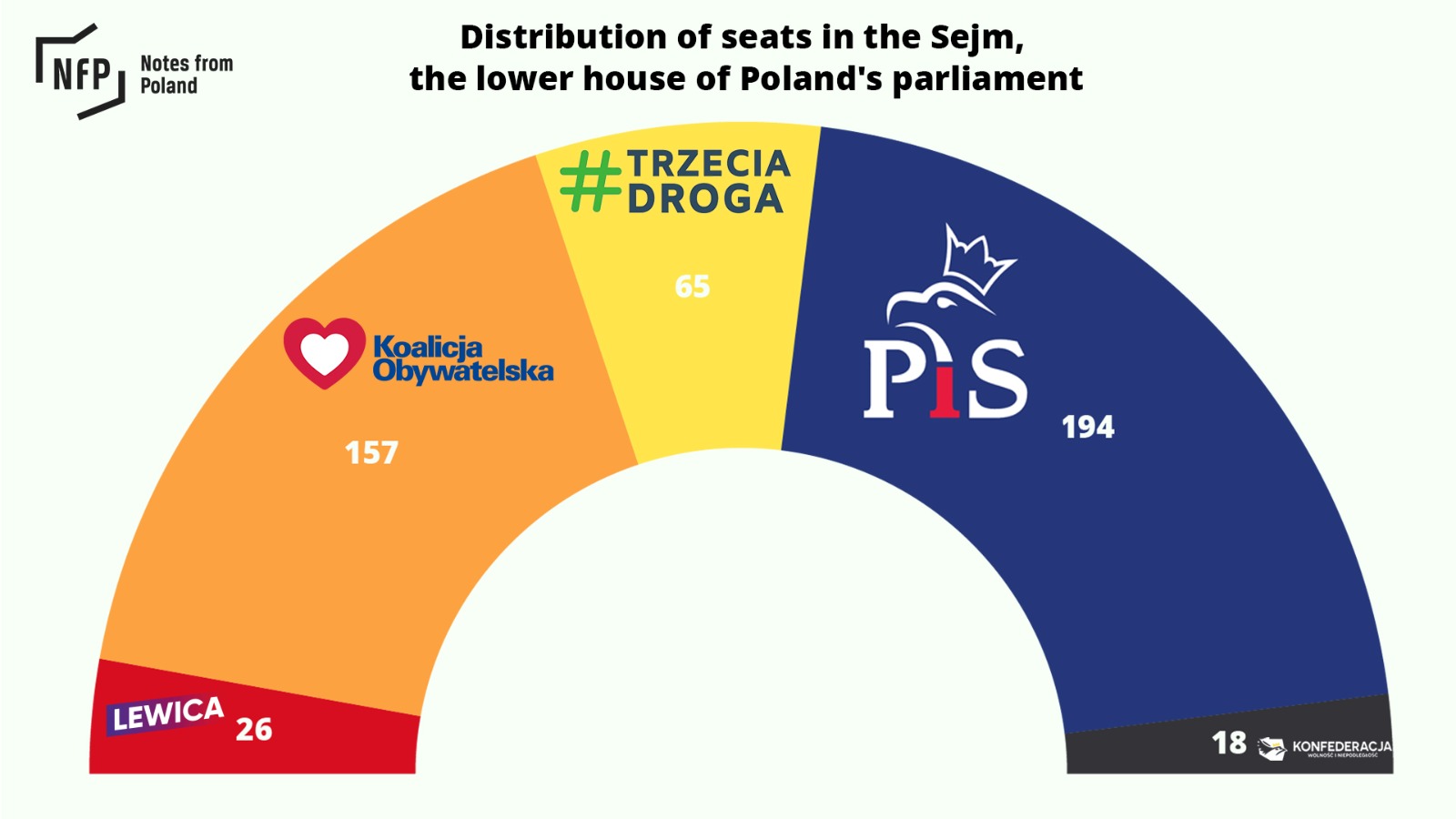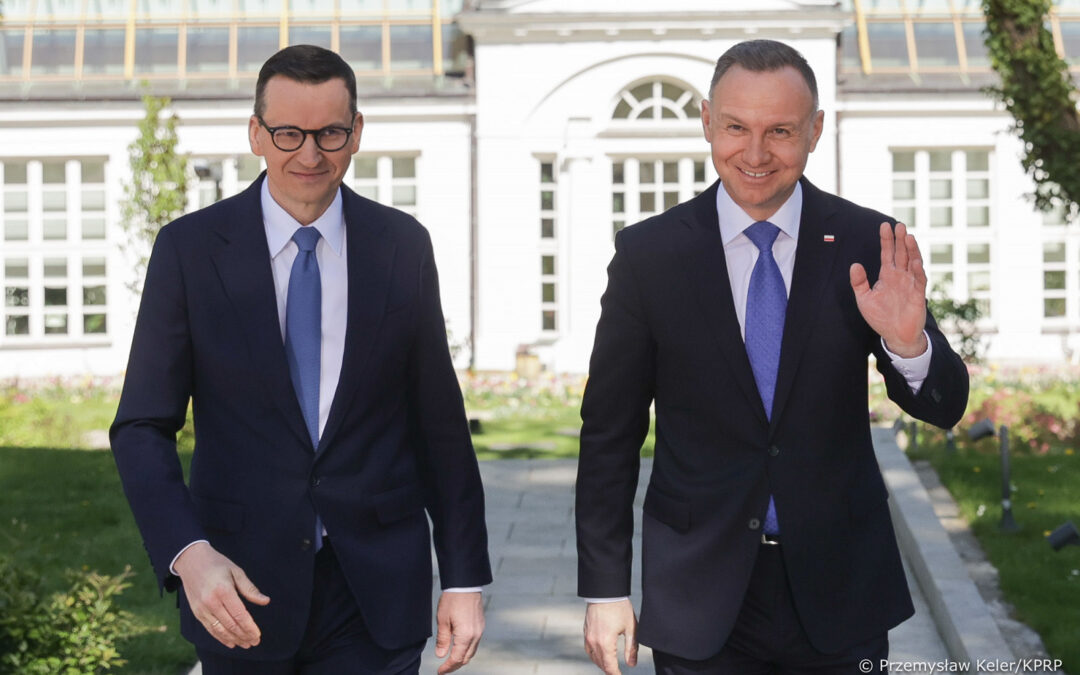President Andrzej Duda has announced that he will give current Prime Minister Mateusz Morawicki and his national-conservative Law and Justice (PiS) party, which has ruled Poland since 2015, the first opportunity to form a new government.
In a speech to the nation this evening, the president noted that no single group had won a parliamentary majority at the 15 October elections. He then declared that, in keeping with tradition, he would nominate as prime minister the candidate of the largest party, which in this case is Morawiecki of PiS.
Prezydent @AndrzejDuda w orędziu:
✅ Zdecydowałem o powierzeniu funkcji marszałka seniora posłowi @SawickiMarek z @nowePSL. Ma najdłuższy staż parlamentarny i dał się poznać jako człowiek dialogu.
✅ Postanowiłem powierzyć misję sformowania rządu Premierowi @MorawieckiM. Tym… pic.twitter.com/lUJ9ng8LHB
— Kancelaria Prezydenta (@prezydentpl) November 6, 2023
Once the new parliament meets for the first time on 13 November, Morawiecki will then have the task of seeking to form a government that can win a vote of confidence in the Sejm, the more powerful lower chamber. However, all other groups have ruled out forming a coalition with PiS.
PiS won 194 seats in the Sejm at the elections. That is 37 short of a majority in the 460-seat chamber.
By contrast, the three main opposition groups – the centrist Civic Coalition (KO), centre-right Third Way (Trzecia Droga) and The Left (Lewica) – together have a comfortable majority of 248 seats and have declared their desire to form a coalition government led by Donald Tusk of KO.

The trio have previously warned Duda – a PiS ally – that he would be wasting time by nominating Morawiecki, who could spend weeks on what they say is the futile task of trying to forge a majority. Only once those efforts fail would the opposition then have the chance to form a government.
PiS has argued, however, that, as the winner of the elections, it should be given that first opportunity. Leading PiS figures have also claimed that they believe it is possible for them to create a parliamentary majority.
In particular, they have sought to woo the Polish People’s Party (PSL), a moderately conservative group that makes up one half of the Third Way alliance. On Saturday, Morawiecki even suggested he would be willing to step aside and serve in a government headed by PSL leader Władysław Kosiniak-Kamysz.
The prime minister says he would be willing to step aside and serve under @KosiniakKamysz of the opposition PSL if it allowed PiS to remain in power.
However, PSL today reiterated that it wants to form a government with other opposition parties, not PiS https://t.co/RmCazZ78Ms
— Notes from Poland 🇵🇱 (@notesfrompoland) November 5, 2023
However, PSL and its leader have repeatedly ruled out any kind of arrangement with PiS. On Sunday, Kosiniak-Kamysz announced that his party’s supreme council had unanimously confirmed that they want to remain part of Third Way and want to form a governing coalition with KO and The Left.
Moreover, even if all of PSL’s MPs – many of whom have individually declared they will not work with PiS – were to enter a coalition with PiS, that would still not be enough for a parliamentary majority.
In his speech today, Duda also announced that he had chosen Marek Sawicki of PSL as “senior marshal”, a largely ceremonial role given to one of the oldest members of parliament, who then chairs the first sitting of the Sejm after elections before a new speaker is chosen.
President Duda has designated Morawiecki as Poland's next PM, giving PiS first chance to form government. Duda must appoint this government within 14 days of first session of new parliament (November 13). PM then has another 14 days to present program and hold confidence vote. 1/
— Stanley Bill (@StanleySBill) November 6, 2023

Notes from Poland is run by a small editorial team and published by an independent, non-profit foundation that is funded through donations from our readers. We cannot do what we do without your support.
Main image credit: Przemysław Keler/KPRP

Daniel Tilles is editor-in-chief of Notes from Poland. He has written on Polish affairs for a wide range of publications, including Foreign Policy, POLITICO Europe, EUobserver and Dziennik Gazeta Prawna.



















